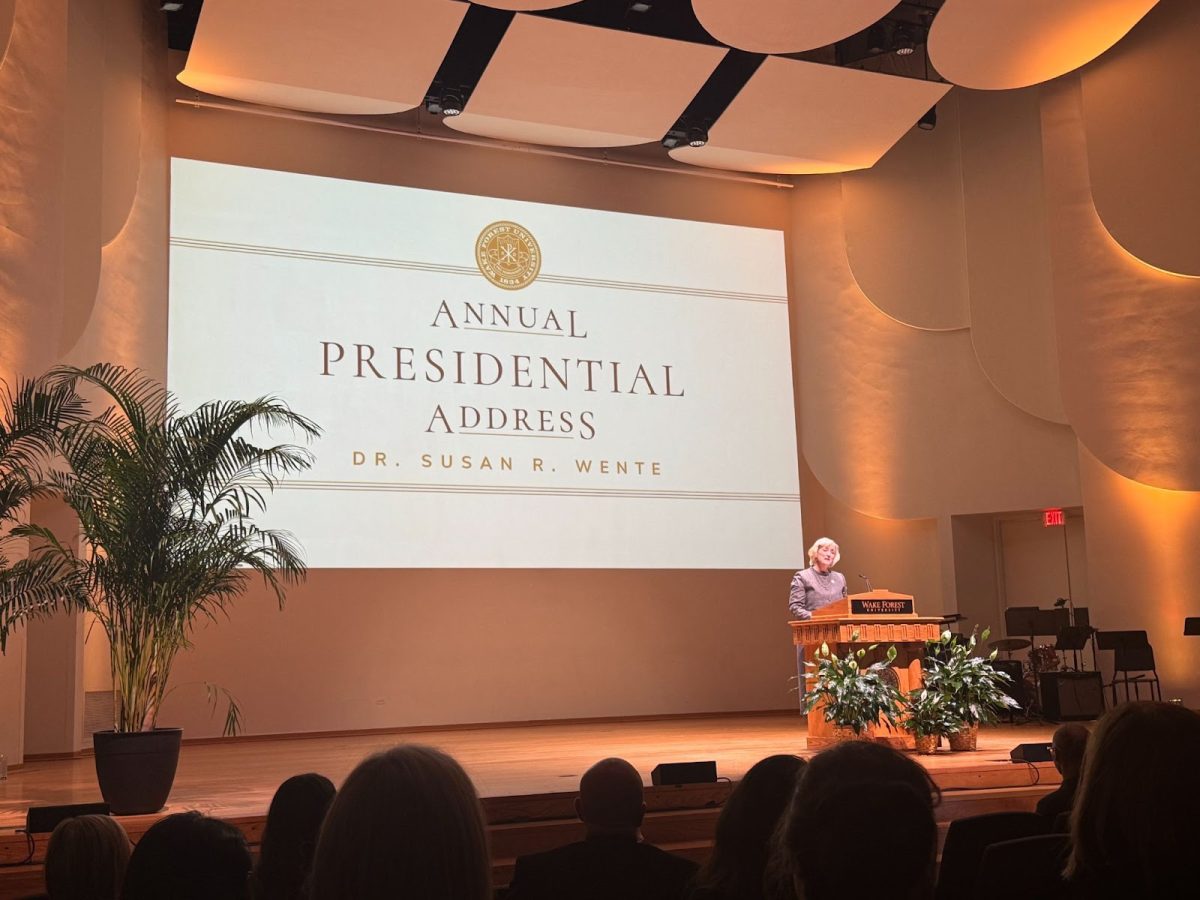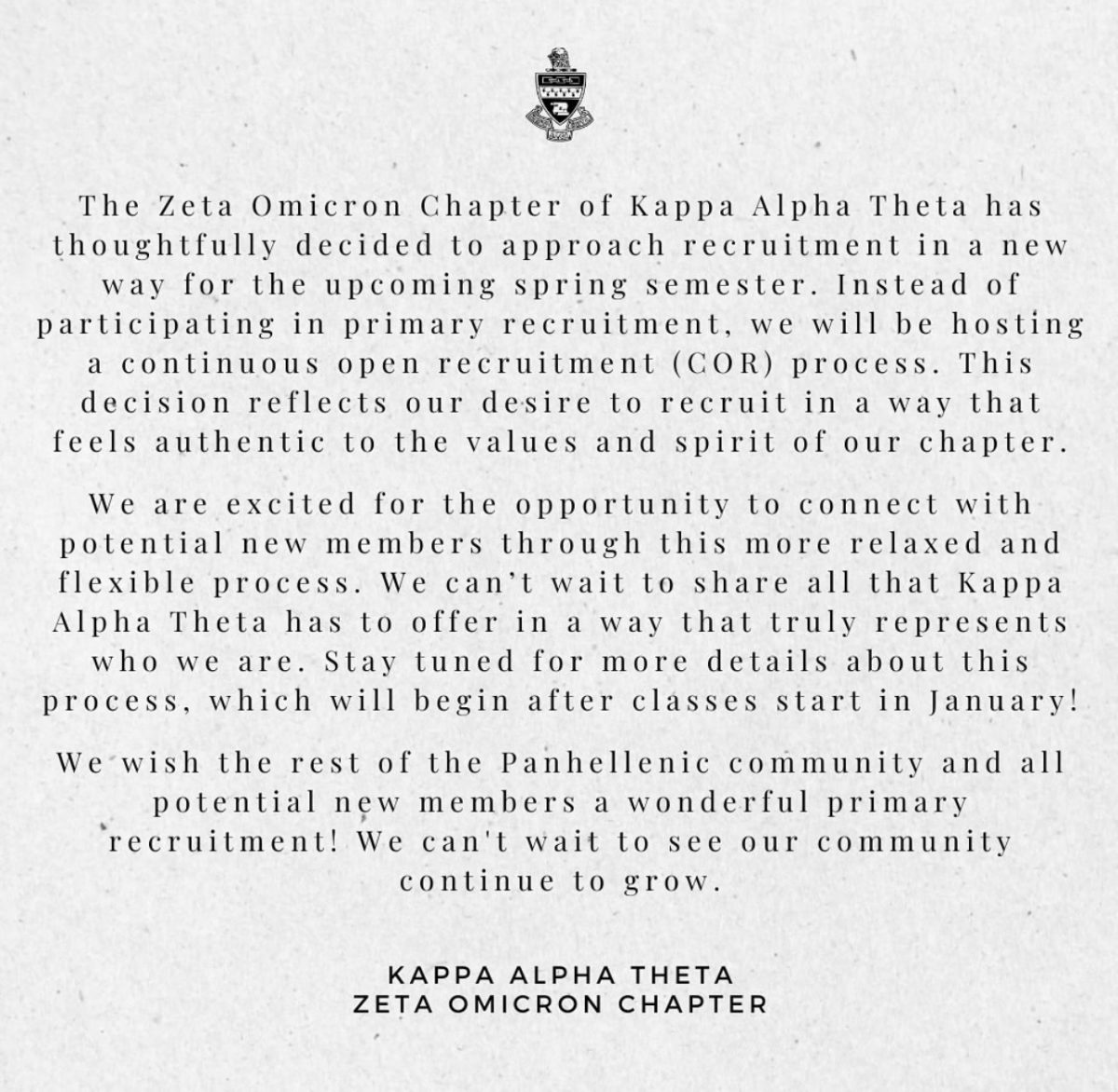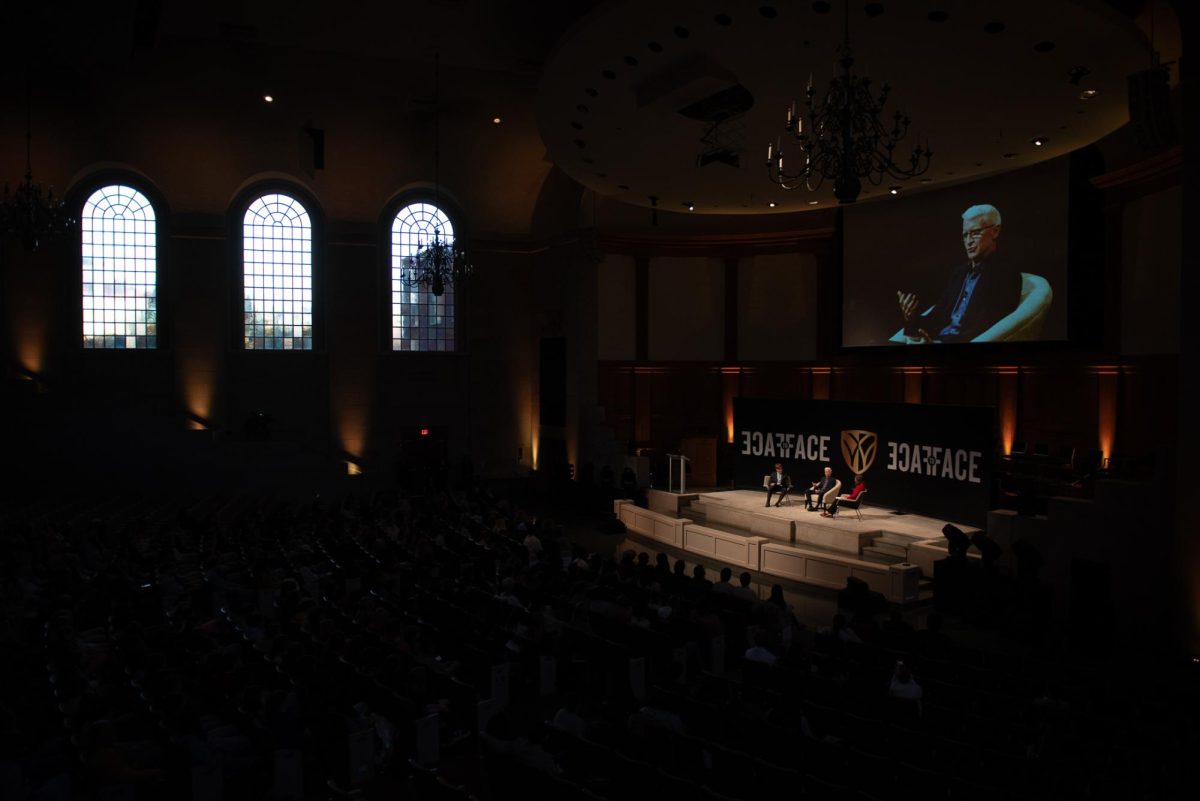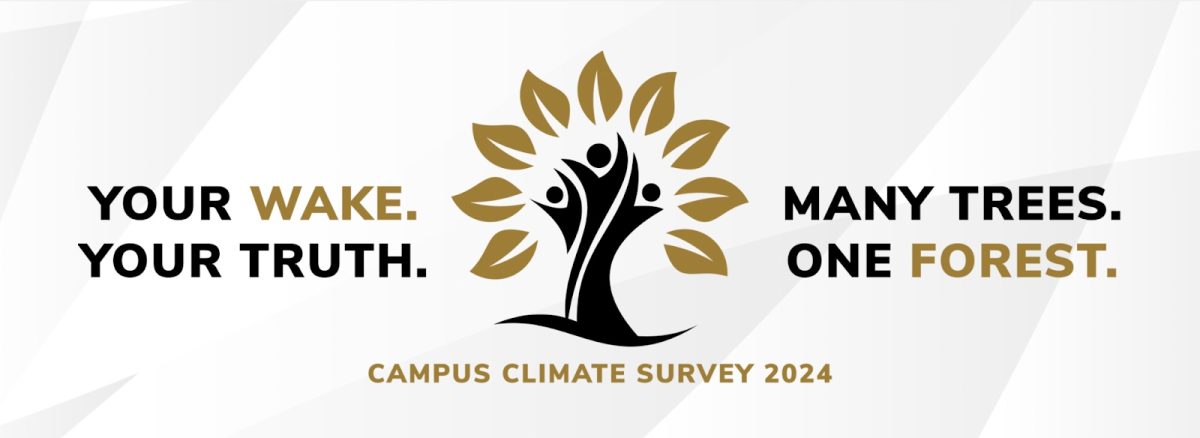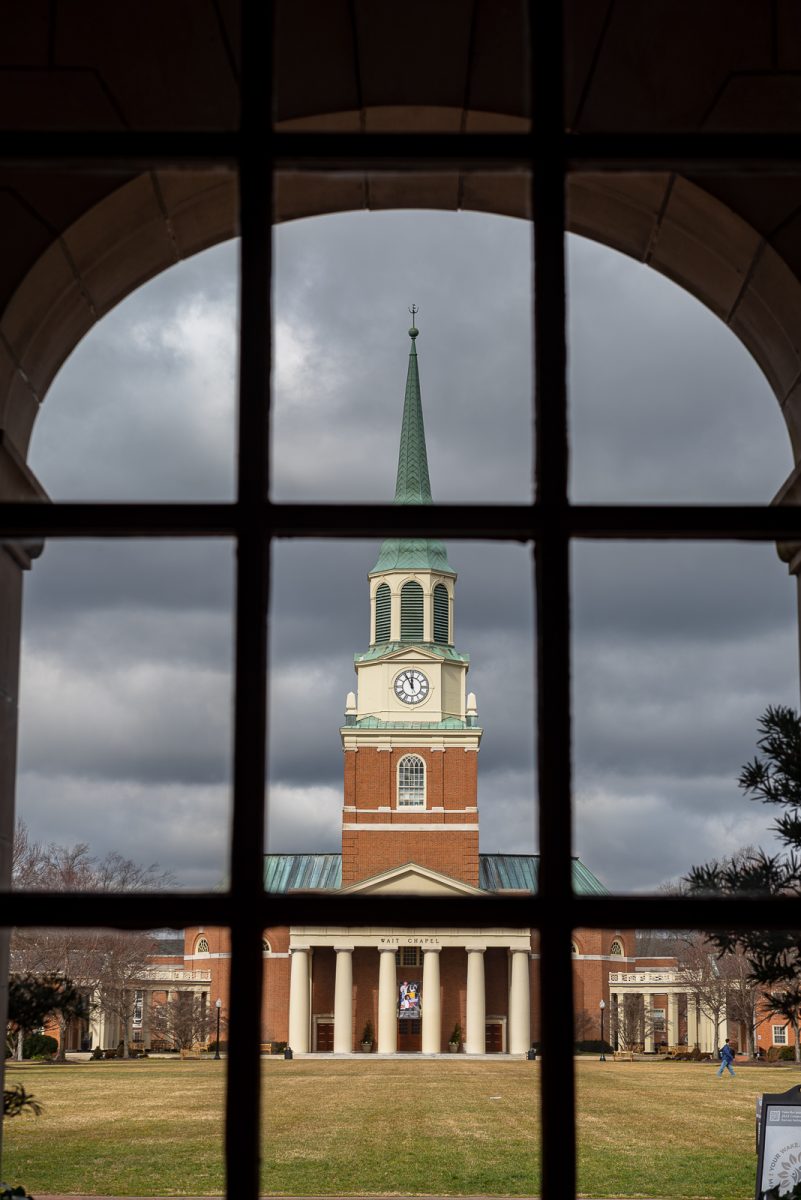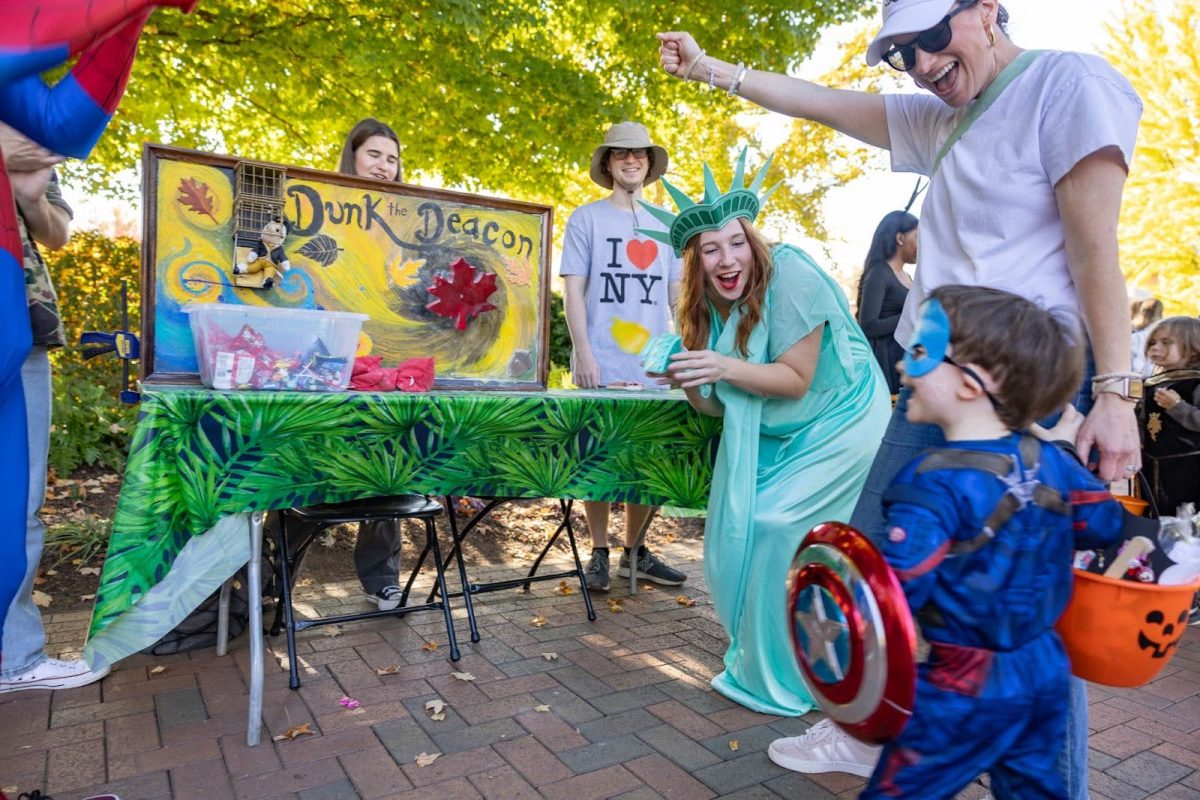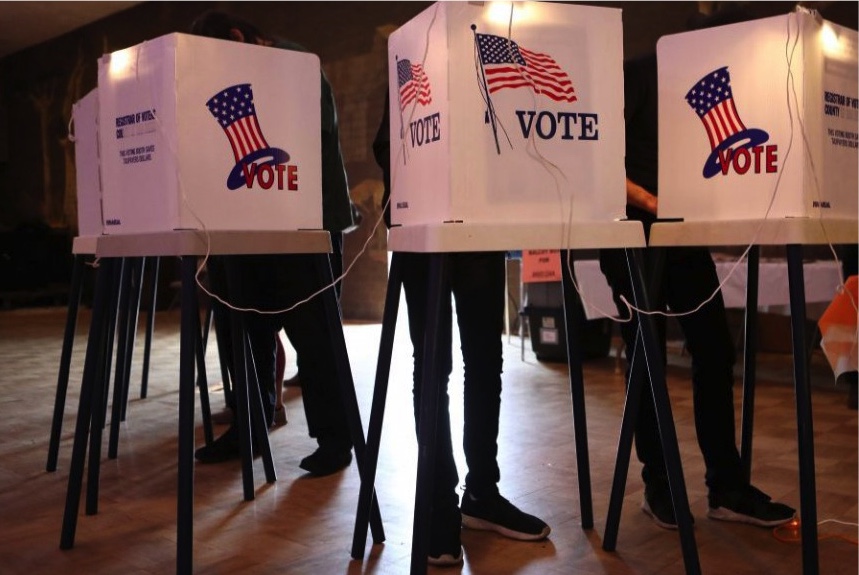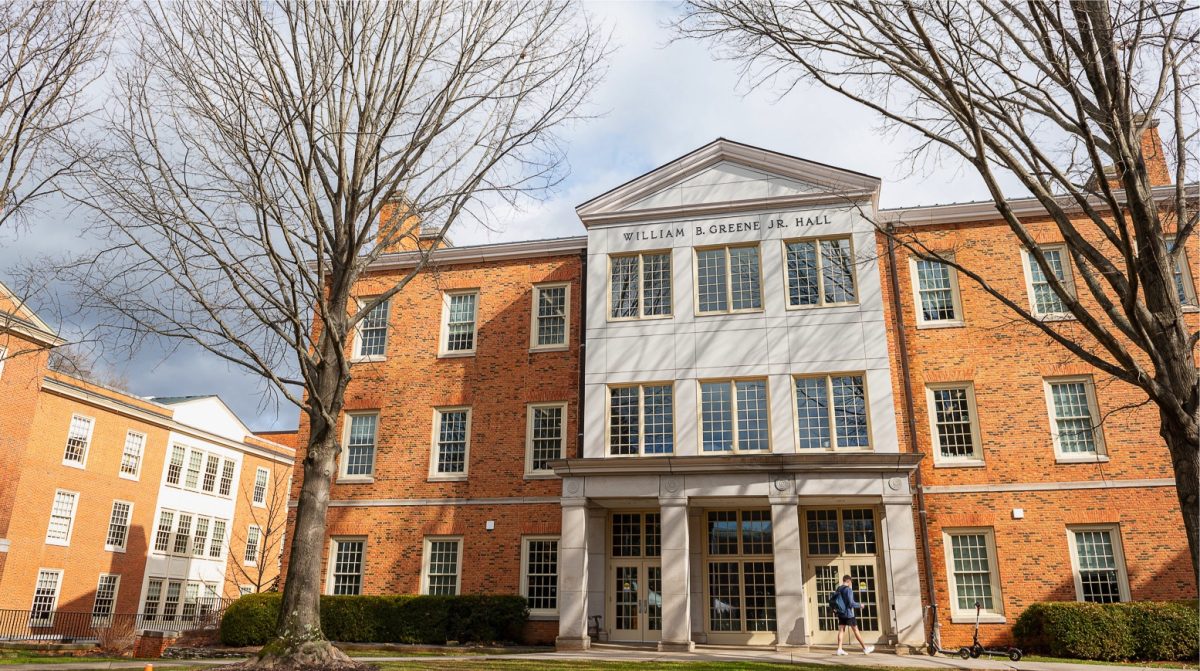The American political landscape has in recent months been fraught with an epistemic crisis as, according to English professor Dean Franco, “Political operatives and allies of the current president began challenging the veracity of all sorts of modes of truth.”
To address this issue in the context of humanistic inquiry, Wake Forest faculty gathered for a Knowledge and Uncertainty Across the Humanities symposium, sponsored by the Humanities Institute and Re-thinking Community initiative. It featured a panel of Wake Forest humanities faculty tasked with defending or refuting the value of their disciplines while exploring the role of humanistic study in modernity.
Each of seven panelists presented a five minute address in which they explained the extent to which their studies of literature, history, philosophy and classics matter existentially, and defined the constitution of knowledge within their fields. David Lubin, a professor of art history, argued that although he believes his field to not bare any external value, it is dangerous to seek utilitarian justification from any field of study. He did add, however, that art history confronts existential questions about the human experience, and offers a somatic connection to the past that can’t be achieved through conventional history or science.
Rebecca Thomas, a German and Russian professor, added that foreign language studies are important because they promote broader communication between cultures, but are also intrinsically valuable because understanding the perspectives of others allows one to be “self-reflexive about our own positionality.” That is, in furthering one’s understanding of other cultures and ideologies, one may gain a greater understanding of their self.
Each speaker agreed that truths within their disciplines are uncertain, and that academics continue to confront epistemic questions such as what is actually known, and what can ever truly be known. Kendall Tarte, a professor of French studies, provided that interpretations and meanings of classic texts can not be known definitely, but interpreting these texts with contemporary analytical techniques can still be insightful. Additionally, such humanistic inquiries as the study of emotion throughout history may be impossible to define, as emotion cannot be truly captured in any physical capacity.
Following the stance presentations, Herman Rapport, a professor of English, provided a 10 minute response in which he stressed the importance of diligence in absorbing and interpreting knowledge, adding that because personal realities are constructed with mediated information, understanding biases and falsities in such information is necessary to ensure free thought.
Rapport also addressed the issues that arise as teachers and professors seek to navigate ideological neutrality in the classroom setting. Emily Austin, an associate professor of philosophy, added that it may be morally impermissible to justify a neutral ideological stance in cases when students are clearly displaying signs of ignorance. This illustrates a descent from postmodern objectivity and seems to suggest that, while truths are in many cases ill-defined, there are parameters in which disciplinary truthfulness exists; knowledge may not be definite, but there are certain boundaries that we know to encompass what is truthful. Additionally, Rapport noted that as facilitators of their student’s learning, teachers and professors bare the responsibility of instilling critical thinking skills in their students, preparing them to distill the information and knowledge presented to them by mediatory influences such as politics and academia.
The speakers uniformly expressed their beliefs that the humanities represent the human capacity to introspect. Art can reflect cultural ideals just as foreign language studies can facilitate meditations on the nature of self.
We study the humanities not because they may or may not possess some quantifiable utilitarian value, but rather because they are catalysts to self reflection and free thought.



